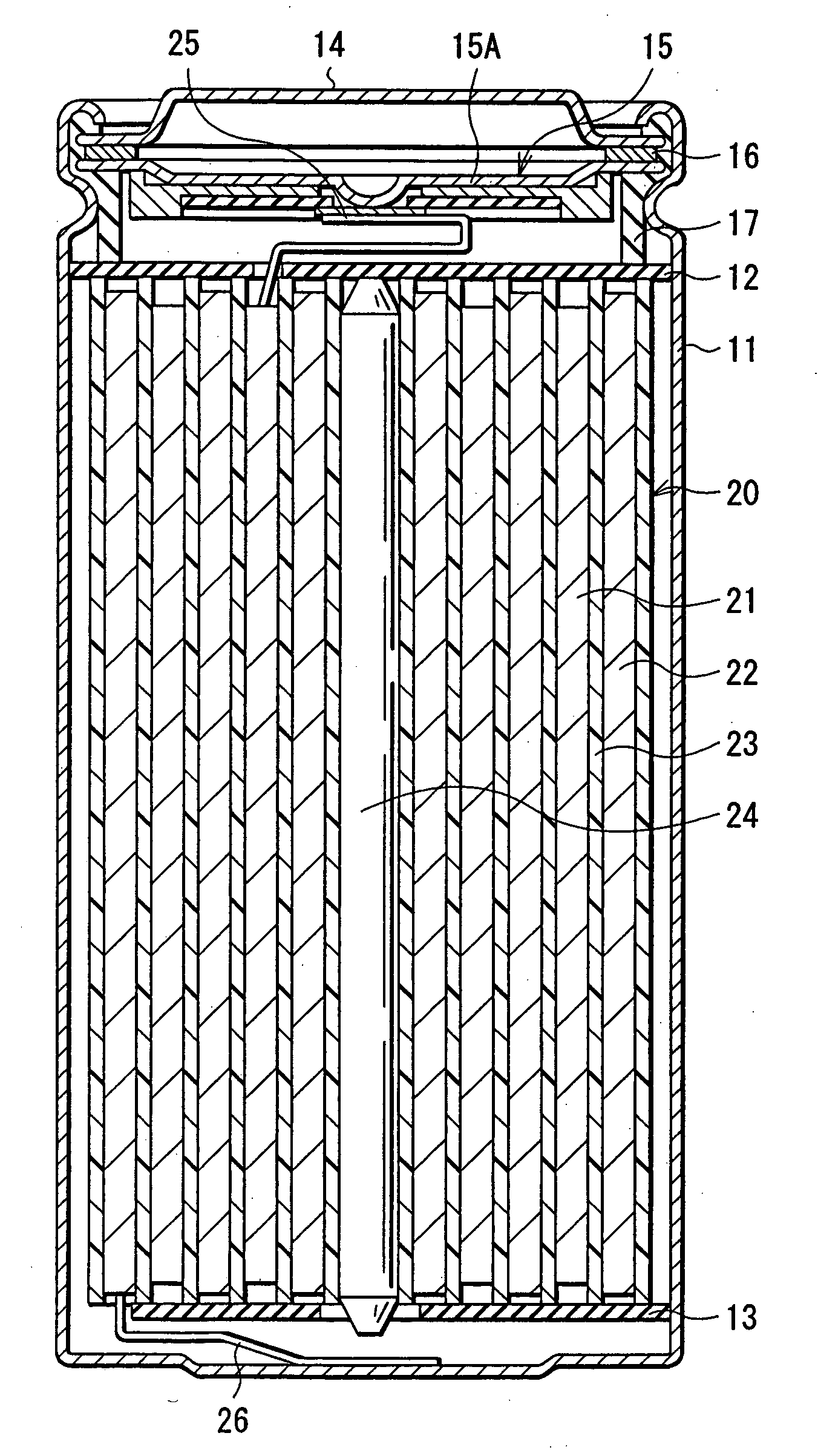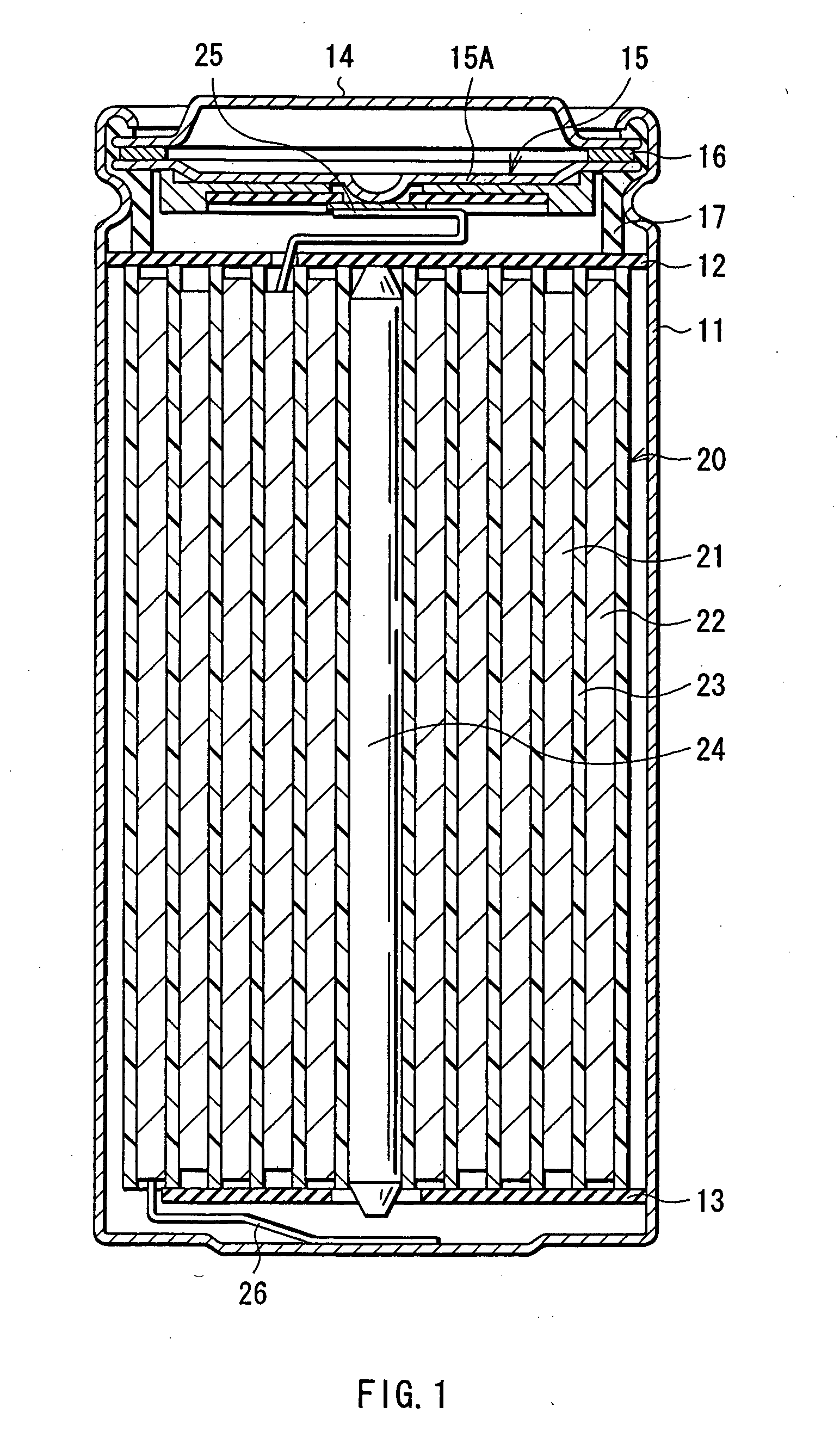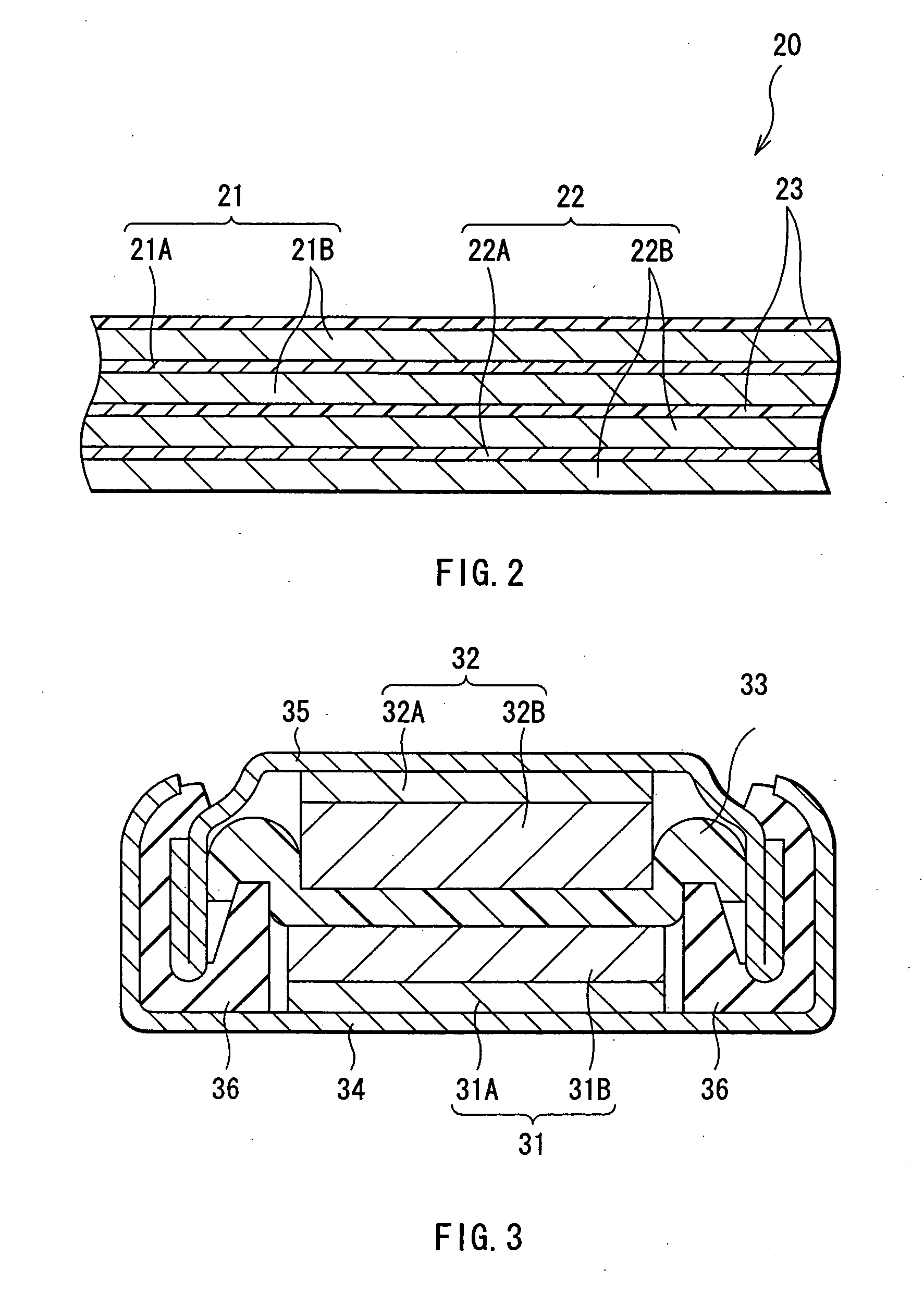Battery
a battery and battery technology, applied in the field of batteries, can solve the problems of insufficient cycle characteristics and small cracking of lithium alloy, and achieve the effects of preventing the reaction between anode and electrolyte, high capacity, and improving charge and discharge efficiency
- Summary
- Abstract
- Description
- Claims
- Application Information
AI Technical Summary
Benefits of technology
Problems solved by technology
Method used
Image
Examples
examples 1-1 to 1-18
[0082] Cylindrical secondary batteries shown in FIGS. 1 and 2 were fabricated as follows. First, lithium carbonate (Li2CO3) and cobalt carbonate (CoCO3) were mixed at a ratio (molar ratio) of Li2CO3:CoCO3=0.5:1. The mixture was fired for 5 hours at 900° C. in the air to obtain lithium cobalt complex oxide (LiCoO2) as a cathode active material. Next, 91 parts by mass of lithium cobalt complex oxide, 6 parts by mass of graphite as a conductive agent, and 3 parts by mass of polyvinylidene fluoride as a binder were mixed to prepare a cathode mixture. Subsequently, this cathode mixture was dispersed in N-methyl-2-pyrolidone of a solvent to obtain a cathode mixture slurry. This cathode mixture slurry was uniformly applied on both sides of the cathode current collector 21A made of a strip shaped aluminum foil having a thickness of 20 μm, dried, and compression-molded to form the cathode active material layer 21B. Then, the resultant was cut in the shape of a strip to form the strip shaped ...
example 2-1 and 2-2
[0093] Secondary batteries were fabricated in a manner similar to in Examples 1-1 to 1-18, except that tin was used as the anode active material, the anode active material layer 22B made of tin having a thickness of 2 μm was formed on the anode current collector 22A made of an electrolytic copper foil having a thickness of 25 μm by electron beam deposition method, and the resultant was provided with heat treatment for 12 hours at 200° C. to form the anode 22. In this regard, types and contents of the light metallic salt were changed as shown in Table 2. When the obtained anode 22 was analyzed by XPS (X-ray Photoelectron Spectroscopy), AES (Auger Electron Spectroscopy), and X-ray diffraction method, it was confirmed that the anode active material layer 22B was alloyed with the anode current collector 22A at least on part of the interface with the anode current collector 22A.
TABLE 2CapacityAnodeElectrolyte saltInitialInternalretentionFormingContentcapacityresistanceratioMaterialmeth...
examples 3-1 to 3-39
[0098] Silicon of an anode active material was deposited to form the anode active material layer, and coin type secondary batteries shown in FIG. 3 were fabricated. In this secondary battery, a discoid cathode 31 and a discoid anode 32 are layered with a separator 33 in between, and the lamination is housed between an exterior can 34 and an exterior cup 35.
[0099] First, lithium cobalt complex oxide of a cathode active material having an average particle diameter of 5 μm, carbon black of a conductive agent, and polyvinylidene fluoride of a binder were mixed at a mass ratio of 92:3:5 to prepare a cathode mixture. Next, this cathode mixture was dispersed in N-methyl-2-pyrolidone of a solvent to obtain a cathode mixture slurry. This cathode mixture slurry was applied on a cathode current collector 31A made of a strip shaped aluminum foil having a thickness of 20 μm, dried, and compression-molded to form a cathode active material layer 31B. The cathode 31 was thereby fabricated.
[0100] ...
PUM
| Property | Measurement | Unit |
|---|---|---|
| temperature | aaaaa | aaaaa |
| roughness | aaaaa | aaaaa |
| density | aaaaa | aaaaa |
Abstract
Description
Claims
Application Information
 Login to View More
Login to View More - R&D
- Intellectual Property
- Life Sciences
- Materials
- Tech Scout
- Unparalleled Data Quality
- Higher Quality Content
- 60% Fewer Hallucinations
Browse by: Latest US Patents, China's latest patents, Technical Efficacy Thesaurus, Application Domain, Technology Topic, Popular Technical Reports.
© 2025 PatSnap. All rights reserved.Legal|Privacy policy|Modern Slavery Act Transparency Statement|Sitemap|About US| Contact US: help@patsnap.com



